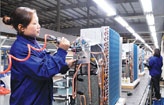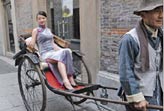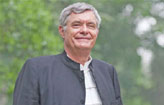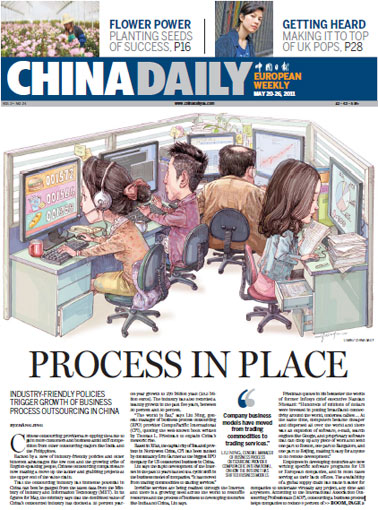Health
IN BRIEF
Updated: 2011-05-25 07:50
(China Daily)
Childhood TV habits affect later life
Children who spend too much time watching television increase the risk of heart disease, high blood pressure and diabetes in later life, an Australian study shows.
In what was declared a world-first in research, the University of Sydney found that 6- to 7-year-olds who spent the most time watching television had narrower arteries in the back of their eyes.
This increased their chances of developing heart disease, high blood pressure and diabetes when they were older.
"Parents need to get their children up and moving and off the couch," Dr Bamini Gopinath, the lead author, says.
Those with the highest levels of physical activity - just over an hour or more - had significantly wider retinal arteries on average than those who spent less than half an hour a day being physically active.
"We found children with a high level of physical activity had a more beneficial microvascular profile compared to those with the lowest levels of physical activity," Gopinath says.
Exercise your eyes regularly to prevent strain
Many people strain their eyes by staring for many hours a day at electronic displays, be it a computer monitor, smartphone or flat-panel screen.
"Vision is taxed much more than previously due to daily work at a monitor," says Christian Ohrloff, director of Frankfurt University's eye clinic. The result is often eyestrain and dry eyes at the office, says Ohrloff, who advises that eyes be rested regularly.
"Look into the distance every once in a while - ideally out the window," he says, as this relaxes eye muscles.
Another office irritant for eyes is dry air from heating and air conditioning systems. It disrupts the body's production of tear fluid, causing a condition that experts call "office eye syndrome".
Artificial tears - eyedrops containing sodium hyaluronate - can help, Ohrloff says. They keep eyes moist and can be used two to three times daily.
Office work also requires eyes to constantly adjust from near to far vision and then back again. Over time, this can lead to minor eye defects, such as microstrabism (slightly crossed eyes), mild short- or farsightedness, or astigmatism, Ohrloff says. This condition, too, has a name - computer vision syndrome.
"Eyes' ability to adjust from near to far vision diminishes, particularly in older adults," Ohrloff says. Reading or occupational glasses can help to improve the ocular adjustment mechanism and thus reduce eyestrain, he adds.
Crossing your arms may alleviate pain
Crossing your arms across the middle of your body confuses the brain and helps reduce the intensity of pain, according to a research.
Scientists from University College London (UCL), who reported the finding in the journal Pain, say they think the reason for the phenomenon is conflicting information between two of the brain's maps - one for the body and one for external space.
"In everyday life, you mostly use your left hand to touch things on the left side of the world and your right hand for the right side of the world," says Giandomenico Iannetti of UCL's department of physiology, pharmacology and neuroscience.
He says this means the brain areas that hold the map of the right body and the map of right external space are usually activated together, leading to very effective pain processing.
"When you cross your arms, these maps are not activated together anymore," he says, leading to less effective processing, meaning that stimuli, such as pain, can be perceived as weaker.
"Perhaps when we get hurt, we should not only 'rub it better' but also cross our arms," Iannetti says.
AFP-DPA
E-paper

Thawing out
After a deep freeze in sales during the recession, China’s air conditioner makers are bouncing back
Cool Iron lady
Of good and evil
Build on security initiatives
Specials

Memory lanes
Shanghai’s historic ALLEYS not just unique architecture but a way of life

Great expectations
Hong Kong-born singer songwriter rises to the top of the UK pops.

A diplomat of character
Belgian envoy draws on personal fascination to help build China ties.
